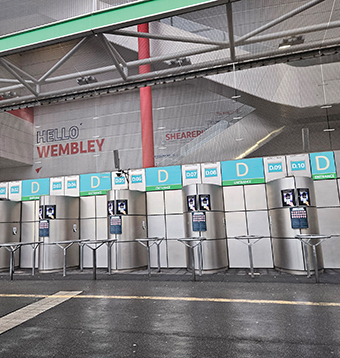If you are a fan of almost any sport except football, a game that you can play is worrying about the sport’s financial future, writes Mark Rowe.
Similar debates go on in cricket, either code of rugby, basketball, horse racing and so forth: and even in football, you do not have to go many tiers down from the Premier League and clubs have perennial problems around stagnant attendances and among their gates, teenagers who are not there merely to watch the football but to enjoy themselves by throwing flares or other ‘pyros’ (short for pyrotechnics) when their team scores. Football has an ambivalent relationship to pyros; while the authorities know well that they’re illegal. An example came during last Friday night’s FA Cup first round tie between non-league Alfreton Town and former non-league now fourth tier club Notts County. Alfreton fans celebrated scoring by throwing a pyro. One of the commentators on BBC Radio Derby said the sight of the red mist was ‘great’; it took the other commentator to recall that he was nearly hit in the face by one when following Derby County, at Blackburn.
While football clubs are well able to survive the usual punishment by the Football League for crowd misbehaviour, other sports are fretting that they do not have enough paying fans nor income to keep professional clubs going. In July, the British Basketball Federation (BBF) ended the licence of one operator of the men’s professional league and gave a new one. The sports are realising that their competitors are not other team sports, but Formula One racing, wrestling, and video gaming (as talked up recently by London Mayor Sadiq Khan), that are arguably not sports at all, yet attract a young audience, online, that consume content, without necessarily ever going to a live event. Why should young people, when it’s dry, safe and warm in their room, and altogether easier to view online, compared with going out? The implication for event stewarding and crowd control may be profound; if young people are less keen on going out, do event security contractors have a future?!
Sports have responded: English cricket has invented The Hundred, besides the T20 franchise game, to appeal to young people (brought to matches by their parents) who would not, so the thinking went at the England and Wales Cricket Board (ECB), otherwise follow the game (and, you could hope, go on to watch longer forms of the game, as they grow up). Those in the field (pardon the pun) working at cricket stadia have confirmed to Professional Security what any ticket-holder at or television watcher of a T20 or Hundred match can see for themselves; that the make-up of the crowd – its age and amount of women – is different from the longer forms, and five-day Test cricket. That means different demands on stewards and SIA-badged security staff; the work is more likely to be around missing children than drunkenness and disorder. On the other hand, that horse racing seeks to bring in a mass audience by offering pop groups alongside race meetings, means that those stewarding racecourses may face larger numbers of drunken men – and women.
Given the sheer amount of live events on offer, especially in midsummer – pop festivals such as Glastonbury, that have become as traditional as Ascot racing and Wimbledon tennis, no wonder many feel the competition. Events continue to fill Wembley (pictured, entrances) the premier venue in Britain – it was full for multiple Taylor Swift Eras tour concerts in 2024, and may well be full for Oasis in 2025. The security and safety problem, in those cases, is a nice one to have for the promoters and artists; popularity. The very fact that audiences are unused to going out, let alone to navigating Wembley, can bring risks, when everyone wants to leave at once after the event. Venues aren’t alone in the threat of crushing; Euston station and other main railway stations have near-misses on concourses and platforms when too many people try, perhaps moving at speed anxiously to catch a delayed train, to occupy the same space. Then it becomes a mere matter of physics; too many people in too little space, if not relieved in time, can suffocate to death; as happened fatefully at Hillsborough for an FA Cup semi final in 1989.
See also review of 2024: crowded events.
https://professionalsecurity.co.uk/news/commercial-security/review-of-2024-event-security/

